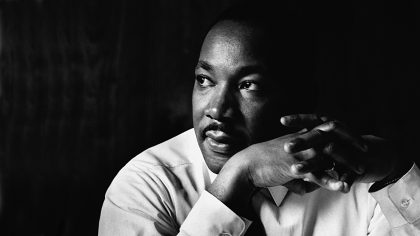
This week saw the celebration of Martin Luther King Jr., one of our nation’s most notable Civil Rights leaders, a Nobel Peace Prize recipient, and an activist for peace. In his 1964 Nobel Peace Prize acceptance speech, Dr. King said:
“Sooner or later, all the peoples of the world will have to discover a way to live together in peace, and thereby transform this pending cosmic elegy into a creative psalm of brotherhood.”
Dr. King’s words resonate with the theme of tolerance advocated by the Gedenk Movement, our sponsor for the Gedenk Award for Tolerance. Gedenk means “remember” in Yiddish, and the Gedenk Movement was founded by Miri Ben-Ari to promote tolerance, raise awareness, and encourage education and self-expression among youth about Anti-Semitism, racism, and their brutal consequences.
Standing up for tolerance is not always easy. As Dr. King wrote in his book Strength to Love (1963), “The ultimate measure of a man is not where he stands in moments of comfort and convenience, but where he stands at times of challenge and controversy.”
We ask students to consider their own role in cultivating tolerance when submitting their work for a Gedenk Award because it’s important to be aware of moments when a show of tolerance is needed, and when someone stood up for peace when everyone else was sitting down. In the words of Dr. King, “We are caught in an inescapable network of mutuality, tied in a single garment of destiny. Whatever affects one directly, affects all indirectly.” (Letter from a Birmingham Jail, 1963)
Find out more about the Gedenk Award for Tolerance here.

